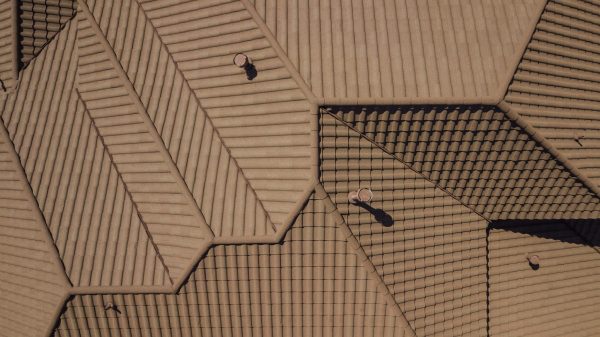
If you encounter an issue with your plumbing, you often look down for a solution. You figure the problem must lie in one of the pipes that drain a toilet, sink or bathtub. However, you might actually have to look up to diagnose the problem. If you look closely at your roof, you’ll notice a few vents protruding from it. Most people are surprised to hear that one of those is a plumbing vent. This is an essential feature that’s just as important to the performance of your plumbing as your pipes are.
What Is a Plumbing Vent?
The plumbing vent, sometimes called a vent stack, removes gas and odors from your sewage system. The vertical pipe is connected to a drain line and extends out from your roof. It incorporates fresh air and atmospheric pressure into the drainage system. This helps flush liquid and solid waste down the drains that release through the sewer line.
Air moves throughout your plumbing system at all times. When you flush a toilet, water flows down through the pipes in your home. However, it also pushes air into the system. Without an adequate way to let that air escape, it can build up in your plumbing.
Why Are Plumbing Vents Important?
Every fixture that drains needs to be vented. A wet vent system drains water from one fixture while allowing air to escape from others. Wet venting allows a toilet, shower and sink to share the same drain.
A dry vent system moves only air and gases. The plumbing vent that sticks out of your roof is part of a dry vent system.
If your plumbing fixtures aren’t vented, they won’t drain properly. You might find that water empties from these fixtures extremely slowly. It may make gurgling sounds as it tries to move away from your home.
The plumbing vent allows the air pressure within the system to stay neutral. It removes noxious gases that get trapped in the sewer line. A plumbing vent also introduces air when necessary to facilitate draining and maintain the correct water level in your toilets and drains. If you didn’t have a way to vent these gases away from your home, they would leak into your indoor space.
Signs That There’s a Problem With Your Plumbing Air Vent
You probably don’t give your plumbing air vent much thought. However, you’ll pay more attention to it if it gets clogged or causes you trouble. Some of the most common signs that you have a problem with your plumbing vent include:
- Gurgling noises from toilets and drains – As water rushes down the drain, it’s combined with air. If the air can’t be released out of the plumbing air vent, it must find another escape route. Therefore, it will try to go out the way it came in, causing bubbling sounds as it fights the flow of water.
- Slow drainage – The neutral air pressure that plumbing air vents generate helps gravity work its magic and push waste away from your house. If the venting system is compromised, water and waste won’t drain as quickly as they’re supposed to, and using auger or plunger won’t fix the problem. Slow drainage causes sediment to accumulate, which causes additional plumbing problems over time.
- Sewage odors – Smelling gas indoors is never a good sign. If the scent of rotten eggs mixed with ammonia is filling the air, it could be an indicator that your plumbing vet is stopped up. When sewer gases can’t escape, they’ll back up into your home. Exposure to sewage gas poses a health hazard. Plus, sewer gas is highly flammable.
- Empty toilet tanks – Maintaining neutral air pressure in the plumbing system regulates the water level in your toilet bowls and tanks. Without the right amount of pressure, your toilets may run continuously, preventing the bowl and tank from filling up.
Potential Problems With Plumbing Air Vents
Plumbing air vents can get clogged when debris, birds nests, snow, ice and small animals block them. This stops the flow of air and impairs your plumbing system. If you experience any of the signs of plumbing air vent problems above, you should call a plumber. The clog could occur at any point throughout the venting system, which runs through your entire house. You can’t necessarily see it by peering into the vent.
Plumbing air vents can also cause problems if they’re improperly installed or coming loose. Your roofers should replace plumbing air vents when they replace a roof. They will also ensure that there is no structural damage to the plumbing air vents during inspections and routine maintenance.
It’s important to have your roof evaluated by a professional annually. At Presidio Roofing, we will ensure that every feature of your roof is in optimal condition. If it’s not, we offer free estimates for repairs and replacements. If you continue to have issues with your plumbing, contact us for an evaluation of all of your roof features, including plumbing vents.
